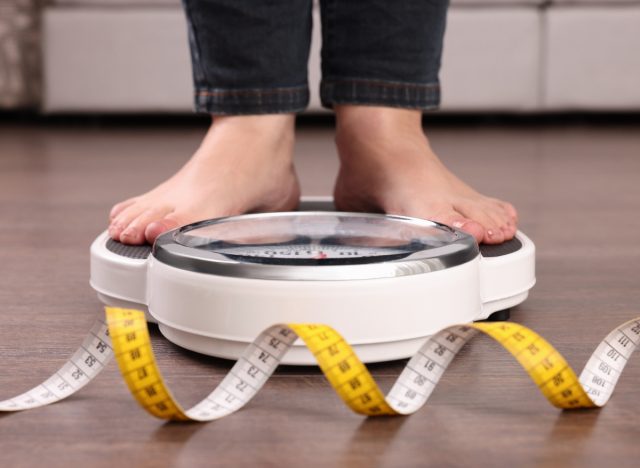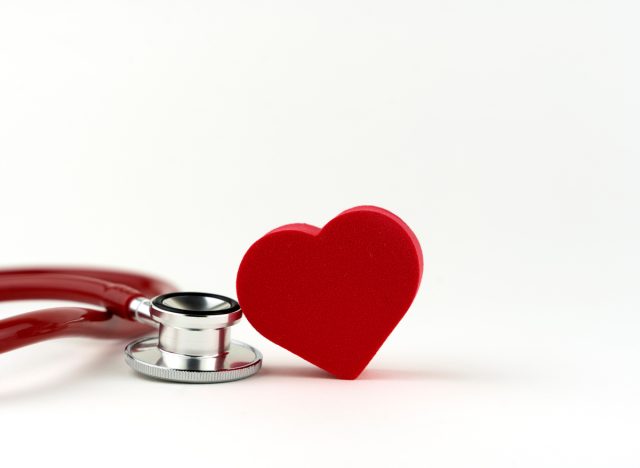Surprising Side Effects of Eating Too Much Butter, Say Dietitians

A classic cooking staple, butter is a dairy product made from the fat and protein components of churned cream. This versatile ingredient can be dressed up or down. You can use as-is, perfect for slabbing over a piece of toast or melting it to coat a pan. Or, you can mix it into other ingredients, dressing up the flavors for recipes. Perfect for sauces, marinades, and more.
If you don't know how to part with butter, then you'll want to listen up. We spoke with The Nutrition Twins, Tammy Lakatos Shames, RDN, CDN, CFT, and Lyssie Lakatos, RDN, CDN, CFT, authors of The Nutrition Twins' Veggie Cure and members of our medical expert board, to discuss the goods and the not-so-goods of eating too much butter. For more on the effects of foods, check out Ugly Side Effects of Eating Too Much Ranch.
Your body's health may improve.

The Nutrition Twins state that you may boost your immunity, benefit from improved blood sugar, and increase heart and bone health if you choose grass-fed butter.
"Grass-fed butter is rich in conjugated linoleic acid (CLA), which research has shown may reduce inflammation and increase immunity," says The Nutrition Twins.
However, even though grass-fed butter may help the body in these ways, The Nutrition Twins note that it's important to keep in mind that this food is still high-calorie and high-fat. They recommend eating it in small amounts to prevent weight gain and the negative health consequences that come with it.
You may gain weight.

"Butter is high in calories; with each tablespoon setting you back over 100 calories," says The Nutrition Twins. "If you put butter in your pan with eggs and spread it on toast at breakfast, add it to a slice of bread with a salad at lunch, and add it to pasta at dinner, it's a fast road to a bigger waistline. When our clients reduce the amount of butter they use, they typically lose weight fairly quickly."
If you feel like you're always adding too but butter into your food, try swapping it out for alternative cooking aids.
Your gut may benefit.

Butter is rich in butyrate—a short-chain fatty acid that is also produced by the "good" bacteria in your gut. This helps to assist with gut health, digestion, and lowers inflammation. It even may help treat Crohn's disease, according to a study posted in the Journal of Alimentary Pharmacology & Therapeutics.
The Nutrition Twins also suggest butter could help with irritable bowel syndrome.
You may increase your risk of heart disease and stroke

"Butter is high in saturated fat with 14 grams of saturated fat in two tablespoons, which is more than the daily recommended maximum allotment of 13 grams," says The Nutrition Twins.
They also state that eating too much saturated fat can raise the "bad" LDL cholesterol in your body. According to the Cleveland Clinic, your risk of having heart disease and a stroke goes up when your LDL cholesterol is high.
You may increase your risk for dementia

According to The Nutrition Twins, overeating butter increases your visceral fat, which in return may make your brain shrink and could increase your risk of dementia later.
"Moderation is the key; too much of any food, especially foods high in fat and calories, like butter, increases belly fat," they say.









